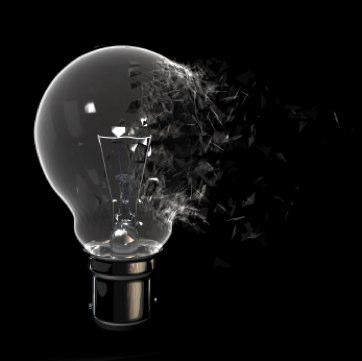We all have a lot of work to do this week. For creatives, expectations continue to ratchet up, and despite the reality that the creative process cannot effectively be squeezed into an assembly-line-type of workflow, we know we need to deliver great ideas and results every day in order to keep the paycheck coming.
Over time, this pressure to produce every day can cause us to fossilize around bad habits. We get into a rhythm – the bad kind – that causes us to move mindlessly through our days without much thought for our process.
Here are five places where you might be experiencing “fossilization”, and some remedies for dealing with them:
Your Process. Over time it’s easy to default to well-worn patterns and succumb to chronic under-stimulation. Your process can become fossilized and you may fail to seek new and novel inspiration. In this case, your world become a smaller and smaller set of concentric circles and you may find that novel ideas are scarce.
The remedy: shake up your process. Try a new method. Use a new tool. Look in a new place for inspiration, especially one that you will have to work to find value in. This will shake off the rust and make sure you’re not defaulting to comfort.
Your Relationships. Many people default to relationships of (a) obligation or (b) convenience, but don’t have time set aside in their life to spend with people who challenge, provoke or otherwise stimulate them. Are your relationships fossilizing, or are you seeking to build relationships with people who will evoke new thinking?
The remedy: set time to get together with someone new. Make sure it’s someone you think will challenge you to think new thoughts. (One benchmark I use is, “If I could see inside of anyone’s notebook right now, just to see what they’re thinking, who would it be?”)
Your Cram-Packed Life. When busy, it’s easy to make commitments indiscriminately without thinking about how each new commitment affects our energy. In truth, every thing we commit to requires us to expend effort that may be diminishing our ability to produce great work. Worse, our schedules often become fossilized around recurring meetings and obligations. We don’t stop to think how this might be killing our creative drive.
The remedy: sit down with your calendar and a red pen. (Or…more likely…your finger on the delete key.) Prune relentlessly. If a meeting, activity, or commitment isn’t absolutely necessary, remove it if you can. (There are always organizational reasons this may not be feasible. Do what you can.) Do the same with commitments you’ve made, side projects you’ve taken on, and anything else that may be suffocating your creative process.
Your Focus. Have you stopped recently to examine whether what you think you’re doing is what you’re really supposed to be doing? We can sometimes slip into “default” mode and glide through our days without thinking much about whether the problems we think we’re solving are really the problems we need to be solving. It’s important to regularly examine and re-define your work so that you’re not slipping into it mindlessly.
The remedy: sit down with a project list and define the real problem(s) you’re trying to solve with each project. Write a number of problem statements (Challenges) for each project. Don’t slip through your days with fossilized assumptions about what the work means. Instead, ensure that your mind is poised and directed in the right place.
Your Input. What are you putting into your head? There’s an old saying about food that “you are what you eat”, and the same principle applies to your mind. You become more like whatever you put into your head. Are you regularly challenging yourself with new kinds of input, communing with great minds, and stimulating new kinds of thought, or are you reinforcing the same old ruts and consuming the same kinds of stimuli over and over?
The remedy: create a list of stimuli, set aside time each day this week, and begin working your way through it. This can mean stimulating web articles, books, or thoughtful magazine articles. Keep a “Stimulus Queue”, or list of potentially valuable stimuli in your notebook. Be more purposeful about what you put in your head. Your next great idea is likely to come from looking “around the edges” of your problem, not by staring at its center.
Don’t allow fossilization to wreak havoc on your creative process. It’s so easy to move mindlessly through your days, but with a little effort you can bust out of the rigidity and inject a new energy into your work.
==
Question: are there other ways you’ve seen fossilization affect your work? How have you dealt with it?
==




Todd, I love the compactness of your advice. You never use more words or pages than are necessary to convey a clear message.
Yes- fossilization is a real threat without we knowing it. The problem is it becomes a habit and habits are easy to stick with and hard to change. Staying in the “auto-pilot” mode may work for some fields but for creativity is the most dangerous stage. Thanks for the article.
Thank you Todd.
I will remember the idea of fossilization.
K, bye